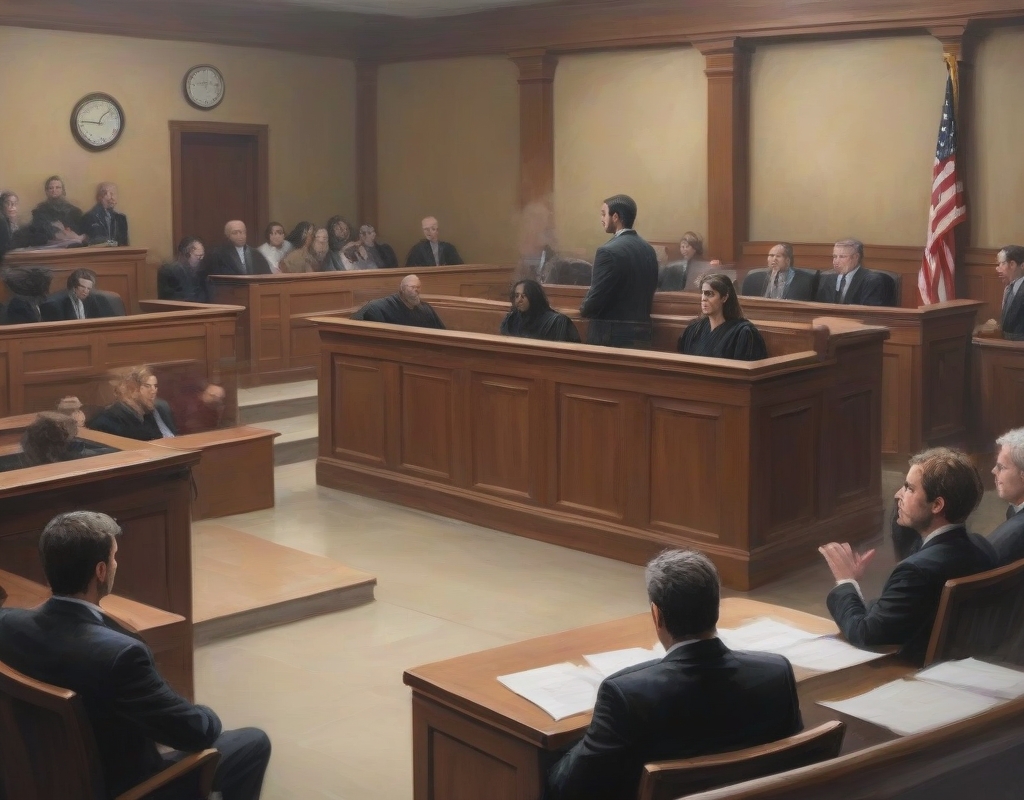In the serene university town of Athens, Georgia, a harrowing incident at the University of Georgia cast a shadow across the nation, spotlighting critical issues of safety and immigration policies. The murder trial of Jose Ibarra, accused of murdering nursing student Laken Riley, has drawn widespread attention while shedding light on the grim details of a promising life tragically cut short. This case, burgeoning with dramatic courtroom revelations and a pivotal emergency call, continues to unravel amidst a fraught societal backdrop.
Laken Riley, 22, was an aspiring nursing student at Augusta University known for her vibrant personality and dedication. Her routine morning jog on February 22nd, 2023, ended fatally following an encounter with Jose Ibarra, a 26-year-old undocumented migrant from Venezuela. The interaction escalated into violence, culminating in Riley’s death—an outcome that has been forensically detailed in the ongoing court proceedings.
Key to the prosecution’s case is the chilling 911 call initiated by Riley amidst the assault. The courtroom listened intently as the call was played, revealing Riley’s desperate pleas for help that were suddenly cut short. Prosecutors argue that Ibarra intentionally interfered with Riley’s attempt to reach emergency services, an act that has become a critical element of the case against him.
Forensic evidence stands at the forefront of the allegations against Ibarra. DNA samples extracted from under Riley’s nails and a distinct thumbprint on her phone corroborate a struggle, denoting Ibarra’s direct involvement, according to prosecution claims. Surveillance footage that places Ibarra at or near the scene of the crime further subordinates his presence at the crucial time, bolstering the case against him.
However, the defense presents a starkly different perspective, insisting that the evidence tabled is circumstantial at best. They argue the absence of eyewitnesses directly linking Ibarra to the crime and suggest that the forensic evidence could be interpreted differently, challenging the solidity of the prosecution’s narrative. As the trial progresses, Ibarra’s defense team continues to advocate for his innocence, highlighting the gaps and defending the possibility of his acquittal based on reasonable doubt.
Beyond the painful details of the crime itself, Riley’s tragic demise has swiftly become a touchstone in the broader national discourse on immigration control. High-profile politicians, including former President Donald Trump, have utilized this event to advocate for more stringent immigration policies, suggesting that such measures could prevent future tragedies. This case has, in many respects, become a linchpin in ongoing legislative discussions designed to enhance national security and regulatory measures.
Reflecting on Riley’s life, the community remembers her as not just a victim but as a beacon of kindness and commitment within her field. The loss has resounded deeply within her university and beyond, with vigils and memorials commemorating her passion and altruistic aspirations in nursing. These events have united the community in grief and a shared determination for justice and safety reassessment.
The trial, which proceeds without a jury at the behest of the accused, has put Judge H. Patrick Haggard at the helm of a complex, high-stakes legal battle. His role is to analyze the swath of evidence and testimony laid out, thereby determining the fate of Jose Ibarra while under the intense scrutiny of a captivated public and media.
Laken Riley’s untimely death has also prompted an outpouring of discussions surrounding campus safety and the obligations of educational institutions in securing their students’ welfare. This has led to initiatives revisiting and potentially strengthening campus safety protocols to better protect students, reflecting a proactive pursuit of enhanced security measures in educational settings across the nation.
The broader implications of the case continue as the public, both locally and nationwide, await the closure of a landmark legal examination that campaigns for justice while also sparking transformative conversations about safety, justice, and immigration policy. Each day of the trial feeds into a larger narrative of community resilience and a collective quest to prevent such tragedies from repeating.
The enduring memory of Laken Riley—marked by sorrow yet driven by a spirit of change—continues to inspire action even as the courtroom battles unfold. Her narrative, a somber tale marked by potential and profound loss, underscores ongoing societal challenges and the joint effort needed to address them. It’s clear that her legacy will resonate far beyond the confines of the courtroom, enduring as a symbol of an affected community’s hope, resilience, and unwavering resolve.




